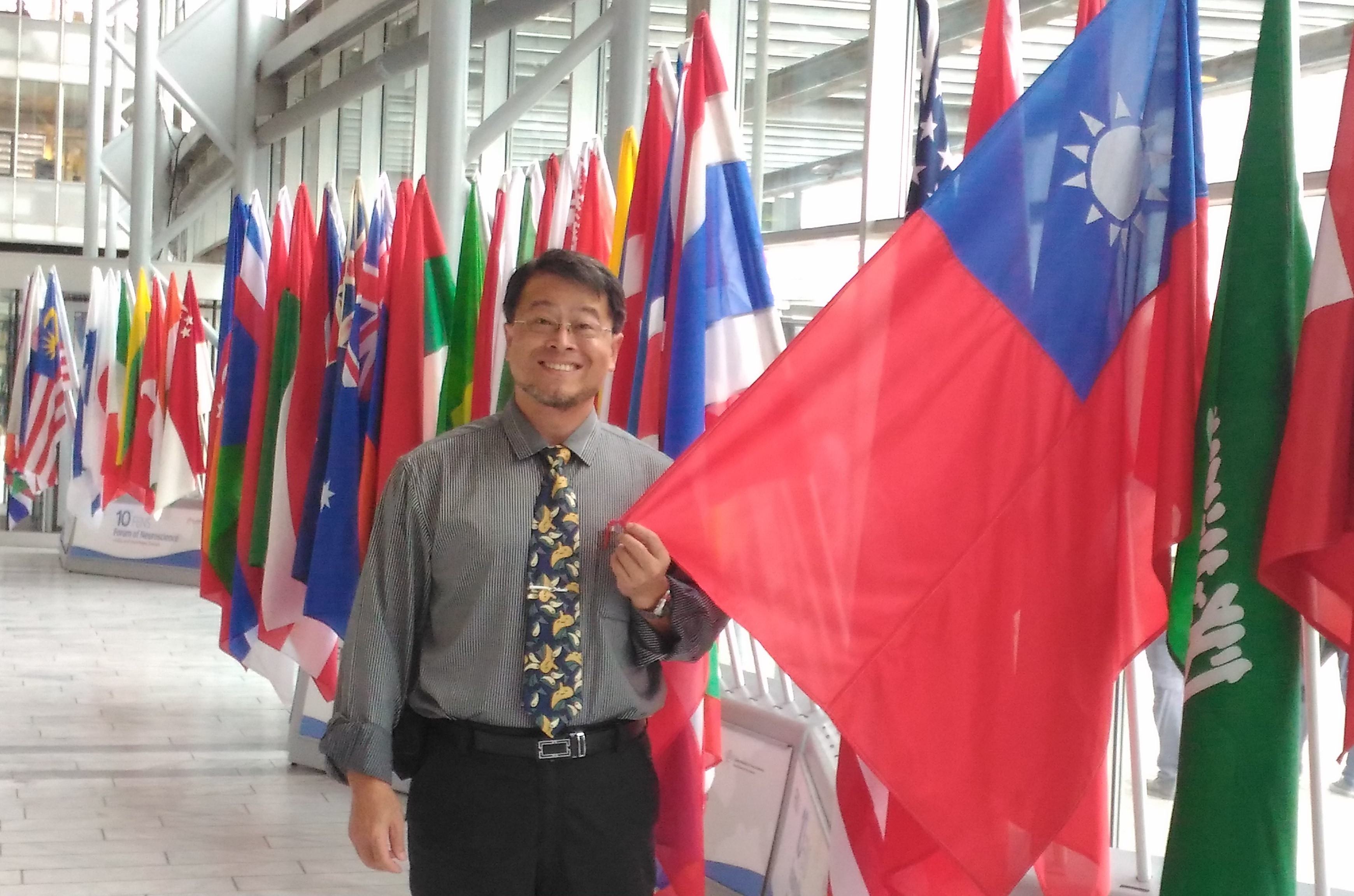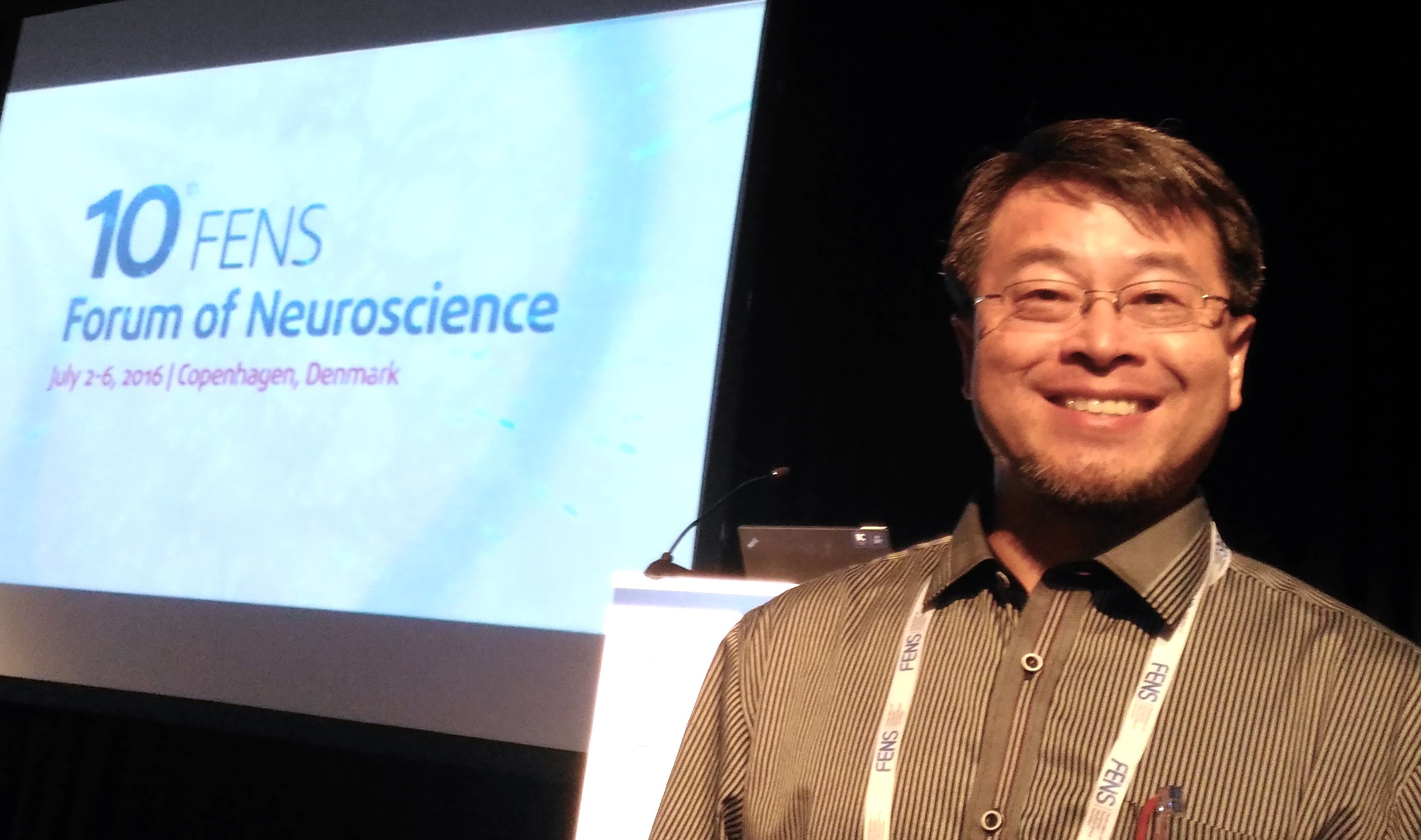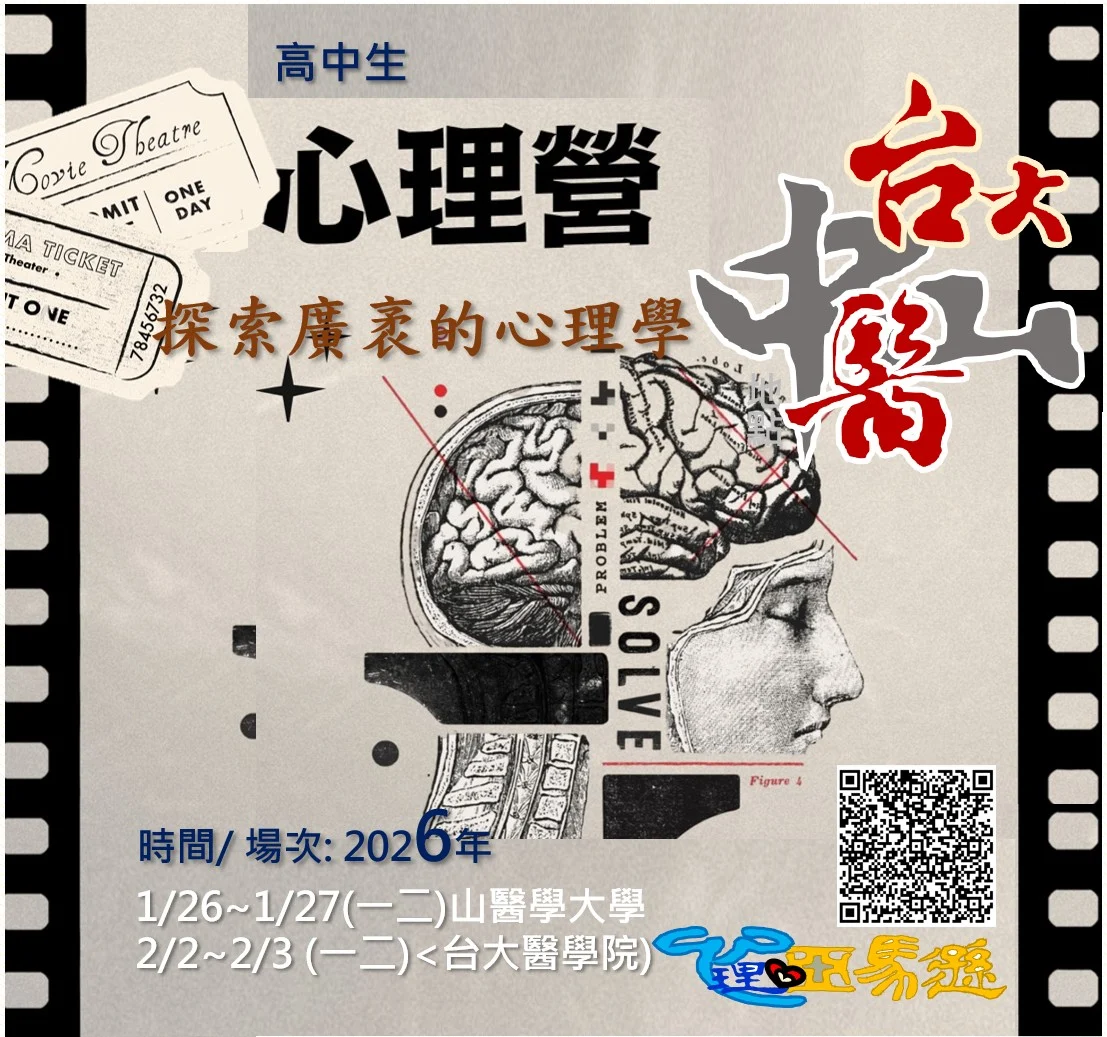
NEW USE FOR AN OLD DRUG: AN ANTIBIOTIC MAY HELP PARKINSON’S DEMENTIA
FEDERATION OF EUROPEAN NEUROSCIENCE SOCIETIES
10th FENS Forum of Neuroscience, 2-6 July 2016 – Copenhagen, Denmark
http://forum2016.fens.org/
PRESS RELEASE EMBARGOED UNTIL TUESDAY 5 JULY 2016, 17.30 CEST / 16.30 BST
中山醫學大學心理學系何應瑞教授的巴金森氏症新藥研究獲得國際媒體重視
Parkinson’s disease is associated mainly with movement disorders. But many patients also develop emotional and cognitive conditions, including dementia. Currently, there is no medication that prevents or cures Parkinson’s disease dementia. But scientists in Taiwan have found a specific antibiotic that may shed light on treatment of this neurodegenerative dementia.
Presenting his research today (5 July) at the FENS Forum of Neuroscience in Copenhagen, Professor Ying-Jui Ho described findings that the antibiotic ceftriaxone, regularly used to treat bacterial infections such as meningitis, pneumonia, and gonorrhoea, may offer an innovative treatment strategy for this form of dementia.

Professor Ho from Chung Shan Medical University, in collaboration with colleagues in Taiwan and Russia, conducted animal studies using ceftriaxone to treat Parkinson’s disease dementia. They used manganese-enhanced magnetic resonance imaging (MEMRI), a method used to understand information-processing in central nervous system pathways, to measure brain cell activity.
The researchers found that ceftriaxone not only relieved motor symptoms of Parkinson’s disease, but also prevented neurodegeneration and improved cognitive function.
Specifically, ceftriaxone prevented various types of neuronal changes associated with Parkinson’s disease dementia. The drug inhibits inflammation in the substantia nigra – a mid-brain area which controls voluntary movement, produces the neurotransmitter dopamine, and regulates mood. Ceftriaxone also inhibits neurodegeneration of specific cells in the hippocampus, a brain area important in memory formation, and associated with cognitive impairment in dementia.
Professor Ho and colleagues also found that ceftriaxone may enhance neurogenesis, the process in which new brain cells are generated – in this case replacing new cells in damaged brain areas, restoring neural activity, and improving cognitive function (including working memory, recognition, and visual space function).

“To our knowledge, this is the first study showing that ceftriaxone prevents loss of neuronal activity and may enhance neurogenesis in the brain. Ceftriaxone’s neuroprotective effects have implications not only for Parkinson’s disease dementia, but may also shed light on treatment of neurodegenerative diseases in general,” said Professor Ho.
Professor Ho mentioned that the research also indicates that MEMRI imaging may be a useful indicator for the severity of Parkinson’s disease, and for judging the effect of treatment.
It is estimated that seven to 10 million people worldwide are living with Parkinson’s disease*. With populations ageing, dementia and neurodegenerative diseases have received increasing attention. Since there are no cures, much research focuses on treatments to alleviate symptoms, improve cognitive function and well-being, and avoid drug-induced side effects.

Professor Ho pointed out that the current drug most regularly used to treat Parkinson’s disease dementia, rivastigmine (originally used to treat Alzheimer’s disease), can also cause gastrointestinal side effects such as nausea, vomiting, and aggravate the tremor experienced by Parkinson’s disease patients. But as ceftriaxone is a generic drug, it could be promptly applied in clinical treatment, he said.
END
Abstract Reference 1992-C02d
Poster Relationships between neuronal activity and density after ceftriaxone treatment in a Parkinson’s disease rat model: an immunohistochemical and MRI study)
Contact
FENS Press Office and all media enquiries:
Elaine Snell, Snell Communications Ltd, London UK (English language)
tel: +44 (0)20 7738 0424 (before 1 July and after 10 July); or mobile +44 (0)7973 953 794
email: [email protected]
Metha Loumann, methamedia, Copenhagen, Denmark (Danish language)
tel: +45 60 82 04 03
email: [email protected]
NOTES TO EDITORS
It is estimated that seven to 10 million people worldwide are living with Parkinson’s disease Parkinson’s Disease Foundation http://www.pdf.org/en/parkinson_statistics
The 10th FENS Forum of Neuroscience, the largest basic neuroscience meeting in Europe, organised by FENS and hosted by the Danish Society for Neuroscience will attract an estimated 6000 international delegates. FENS mission is to advance research and education in neuroscience within and outside Europe, to facilitate interaction and coordination between its members. FENS represents 43 national and single discipline neuroscience societies with about 24,000 member scientists from 33 European countries. http://www.fens.org/
Further Reading
Ceftriaxone prevents the neurodegeneration and decreased neurogenesis seen in a Parkinson’s disease rat model: An immunohistochemical and MRI study. Weng JC, Tikhonova, Chen JH, Shen MS, Meng WY, Chang YT, Chen KH, Liang KC, Hung CS, Amstislavskaya TG, Ho YJ Behavioural Brain Research. May 152016;305:126-39.
doi: 10.1016/j.bbr.2016.02.034. Epub 2016 Mar 3.
巴金森氏症新藥臨床試驗
我們正在執行治療巴金森氏症的新藥臨床試驗。
這項試驗是要測試藥物治療併發認知功能退化的巴金森氏症(稱為巴金森氏症失智;Parkinson’s disease dementia; PDD)之效果。
臨床試驗的受試者,需要要經過非常多的檢查與篩檢,必須符合試驗之所有的收納與排除條件,條件完全吻合者,才可以參加臨床試驗。
若有意願參加這項臨床試驗,可以就近掛號下列醫院(神經內科)的主治醫師,直接向醫師表達有意願參加臨床試驗,醫師會為患者進行必要的檢查,若條件符合,就可以參加試驗。
巴金森氏症 臨床試驗中心與主治醫師
臺大醫院: 吳瑞美、戴春暉、郭明哲、范恬心、林汝甄
台北榮總: 蔣漢琳、陳俊宇、劉祐岑
中國醫藥大學: 蔡崇豪、呂明桂、楊玉婉、黃匯淳、蔡昇達、敖瑀
彰化基督教醫院: 巫錫霖、莊介森、陳彥中
高雄長庚: 林祖功、張永義、陳盈發
這項臨床試驗,目前僅有上述主治醫師可以收案。僅能掛這些醫師。
您可以直接到上面所列的醫院,直接掛醫師的門診,而後向醫師說您要參加臨床試驗,醫師會詳細向您說明,並視實際狀況,向您解釋是否可以進入臨床試驗。
收案最基本門檻必須符合2項認知功能指標(MMSE與CDR測驗)。
您可以(自費)請任一醫學中心的醫師幫您進行MMSE與CDR測驗。
若MMSE: 18-25分或CDR: 0.5-2分,才可以進一步進行篩檢。
否則,便無法進入臨床試驗。
臨床試驗聯絡
若您還需要進一步資訊或協助,歡迎隨時與我聯繫(何應瑞教授電郵: [email protected])。
(若要進一步聯繫,請告訴我下列基本訊息:患者年齡?居住縣市?連絡電話或電郵?患病多少年?主要症狀是甚麼?現在在哪一家醫院哪一位醫師看診?)
.



